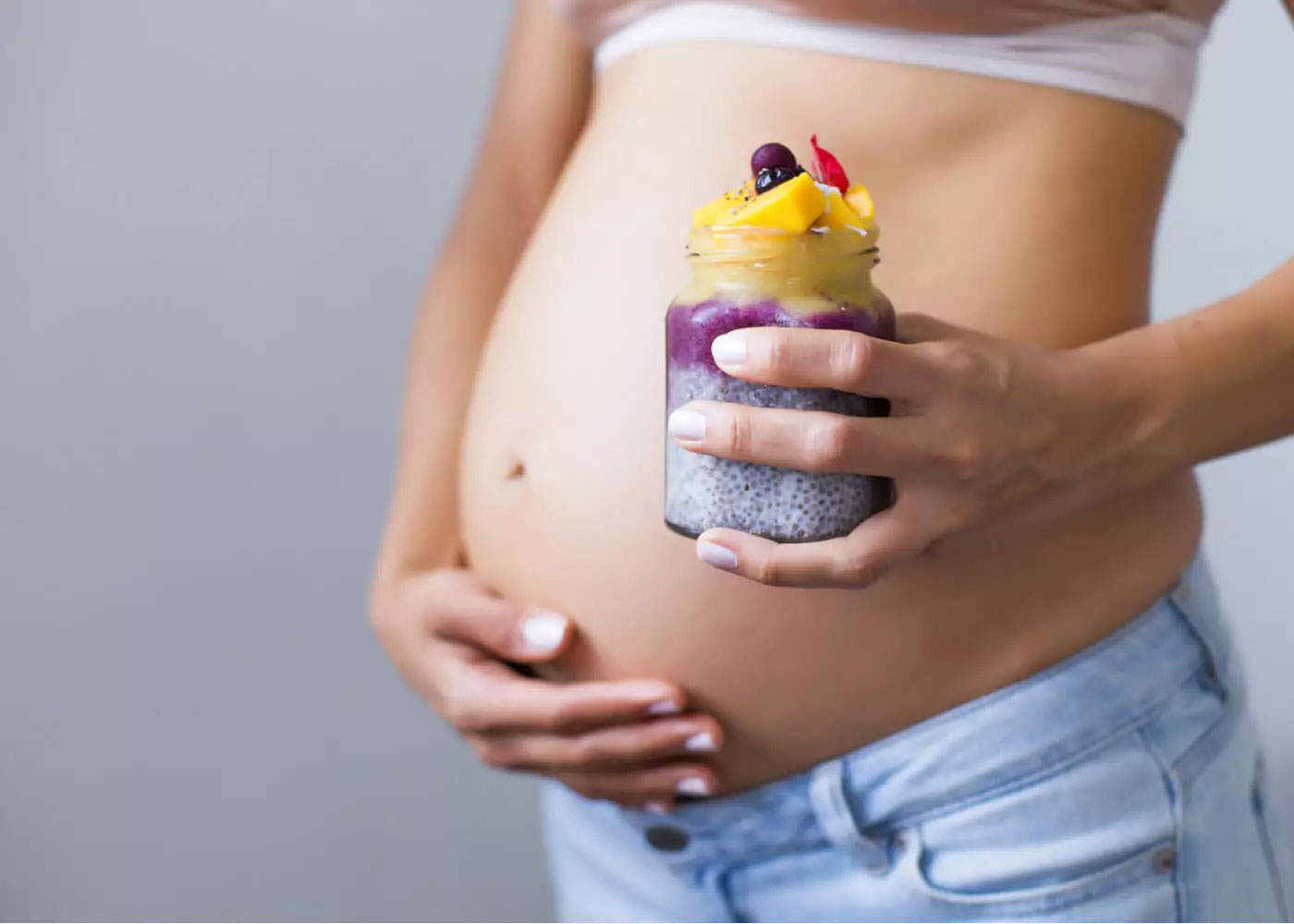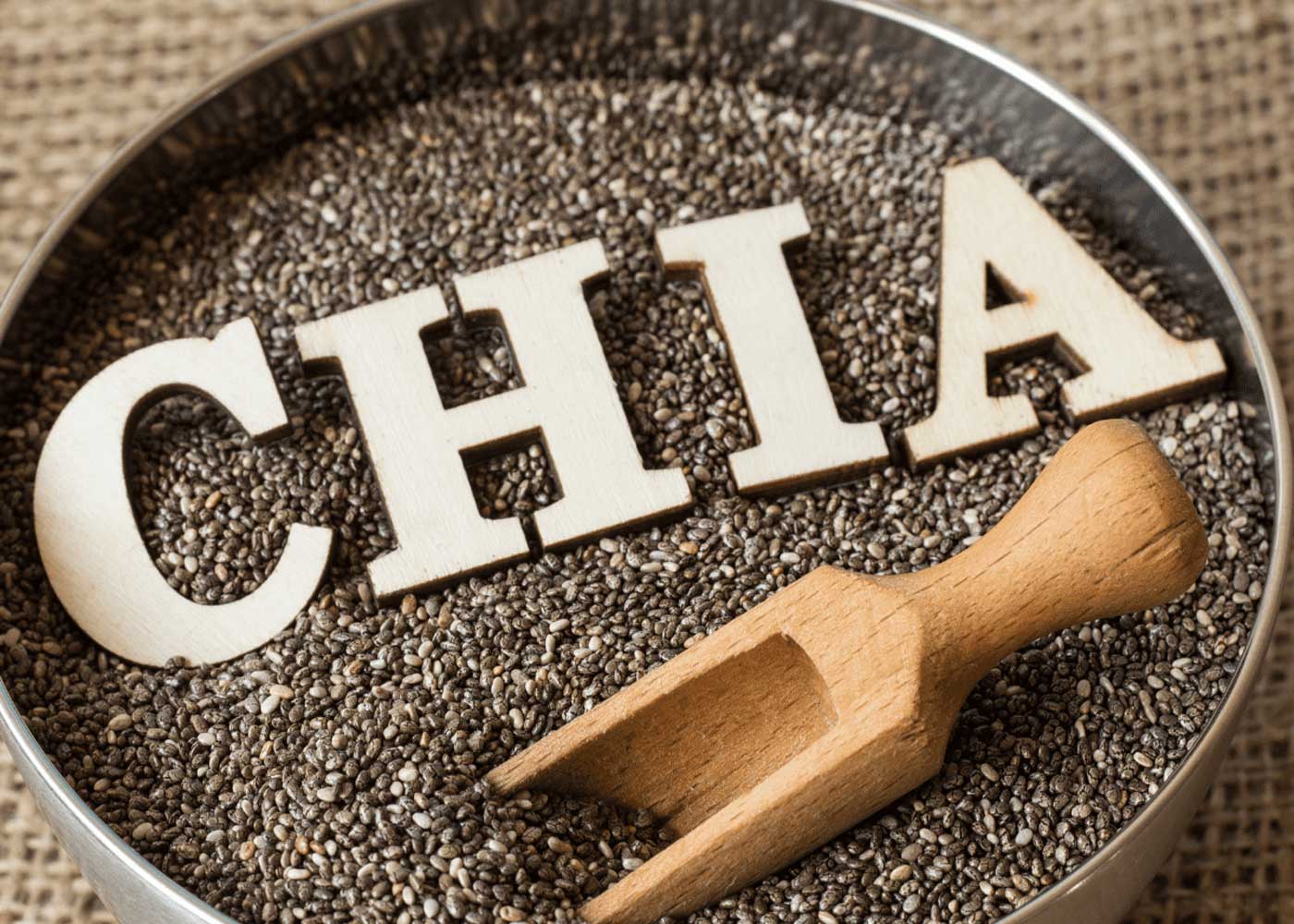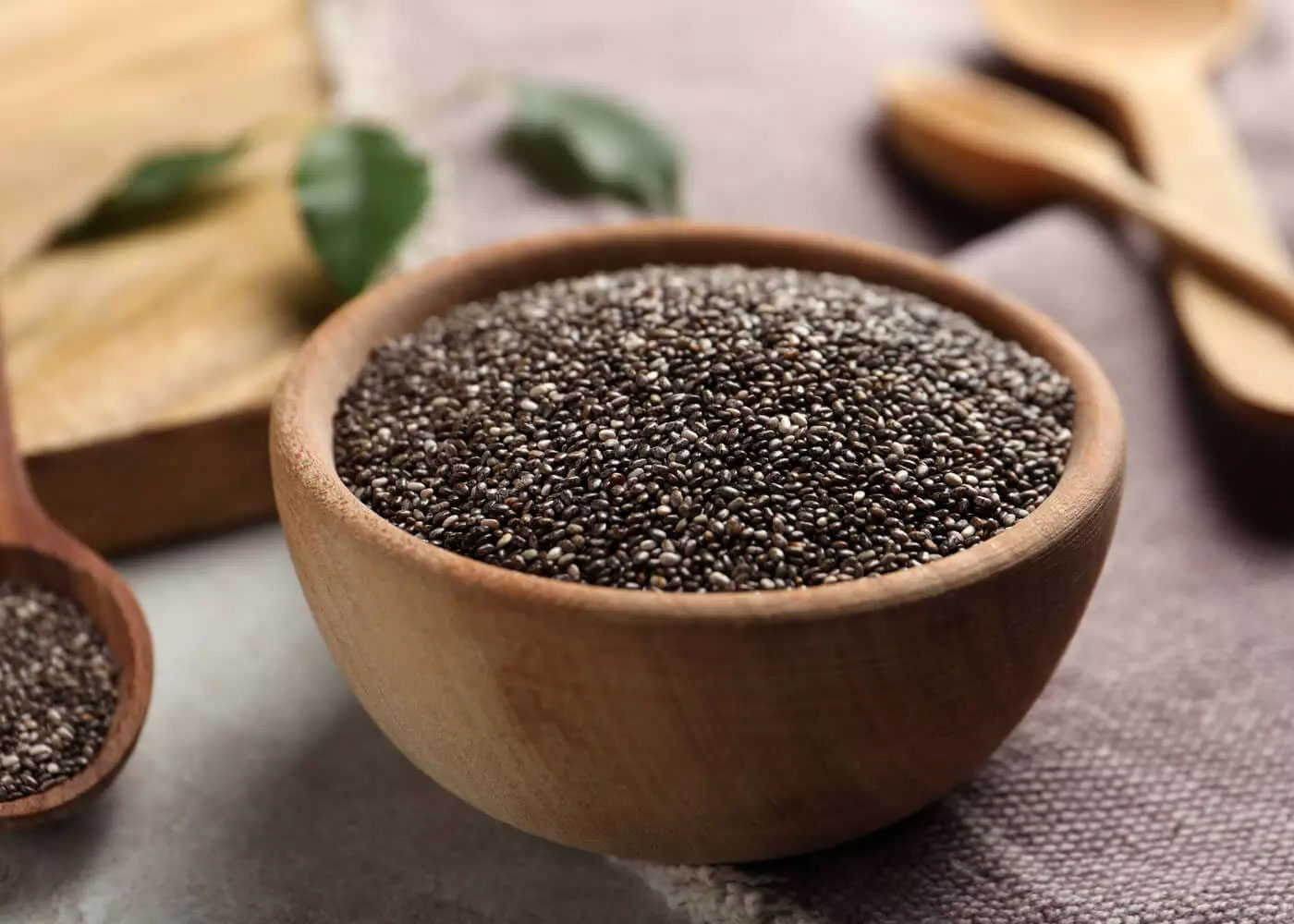Superfood chia seeds are gaining popularity in a variety of places, including food trucks, supermarkets, restaurant menus, and Instagram feeds. The beneficial elements in these tiny, 1 millimeter-diameter seeds are especially important during pregnancy. Chia seeds are typically safe for most people during pregnancy, despite some people having concerns about their safety.
As long as they are taken in reasonable amounts; Chia seeds are considered quite safe to consume during pregnancy. They can even provide some nutritional benefits. Just like any other, food and supplements might have negative impacts and safety issues. Here are some points to keep in mind regarding chia seeds and pregnancy:
Allergies:
Be aware that allergic response symptoms don't usually include your throat constricting or closing. Your tongue or lips could experience a slight reaction, such as tingling or itching. Or you might be experiencing symptoms of morning sickness-like stomach trouble.
Some individuals may have allergies to chia seeds. If you suspect a food allergy, pay attention to how you feel and quit eating the seeds. If you or your partner have a history of seed allergies, it is best to consult a healthcare professional before including chia seeds in your pregnancy diet.

Digestive Discomfort:
Chia seeds are high in fiber, which can help alleviate constipation, a common issue during pregnancy. However, taking an excessive amount of chia seeds without getting enough water can cause digestive discomfort including bloating, gas, or diarrhea. When taking chia seeds, it's critical to drink lots of water to guarantee optimum hydration and reduce any potential discomfort.
Blood Sugar and Blood Pressure Regulation:
Chia seeds are rich in omega-3 fatty acids and fiber, which may assist to manage blood pressure and blood sugar levels. Chia seeds also have a high content of protein. If you use medicine or have a medical condition, talk to your doctor before adding chia seeds to your diet. They can provide guidance based on your specific circumstances.
Anticoagulant Properties:
Chia seeds contain omega-3 alpha-linolenic acid, a naturally occurring anticoagulant. Although the amount in chia seeds is typically regarded as safe, it is advised to use caution if you have a bleeding disease or are taking medicine that thins the blood. As stated before, speaking with a healthcare provider is advisable.

Nutritional Benefits:
The several essential nutrients provided by chia seeds, which are nutrient-dense, include omega-3 fatty acids, protein, fiber, calcium, and iron. They can be a valuable addition to a balanced pregnancy diet. But it's essential to include them in a diet that is well-balanced and meets all of your nutritional needs. As usual, before making any significant dietary changes while pregnant, speak with your healthcare physician or a trained nutritionist. They can offer recommendations that are tailored to your needs and health history.
Hydration:
Chia seeds become gel-like in form when they absorb liquid or when soaked. This can be beneficial for maintaining hydration levels during pregnancy. But you should soak chia seeds beforehand before eating them to stop them from absorbing your body's fluids and perhaps causing dehydration. Digest simpler by soaking, juicing, or adding to smoothies or yogurt.
There are Potential Medication Interactions:
Many pregnant women can consume chia seeds without any problems, but it never hurts to consult your doctor first.
If you already take medicine to control your blood sugar, including chia seeds in your diet may interact with it and cause your blood sugar levels to significantly drop or rise.
They May Cause a Choking Hazard: You're unlikely to choke on chia seeds, in most cases. Still, there is a chance.
If you've never eaten chia seeds, you might not be aware of their ability to swiftly expand and absorb 10 times their own weight in water. If you take a spoonful of chia seeds and then immediately sip water, the seeds may grow in your esophagus.
It can be terrifying to experience the swelling. This is especially true if you already have more phlegm than usual due to pregnancy.
Instead of eating an entire scoop, you should sprinkle chia seeds on your food. The chia seeds will expand before you eat them if you soak them in juice or water to create a drink or a pudding-like gel.

Quantity and Moderation:
While chia seeds offer nutritional benefits, it's crucial to consume them in moderation during pregnancy. Including a tablespoon or two in your daily diet is generally considered safe. Excessive consumption of chia seeds may lead to an excess intake of certain nutrients or potential side effects. It's always best to follow a balanced and varied diet during pregnancy.
Quality and Storage:
Ensure that you get your chia seeds from only stores that can be trusted to stock only the best quality of seeds and kept in a cool, dry place condition. Rancid or improperly stored chia seeds may lose their nutritional value and could potentially cause digestive issues.
Keep in mind that all pregnancies are not the same and circumstances may vary from one person to another. Before consuming chia seeds or any new foods while pregnant, speak with a doctor or dietician. They can advise you on what is most suitable to your specific needs, dietary limitations, and all-around health needs.
Chia Seeds Health Benefits During Pregnancy
It's critical to replenish the nutrients your body loses during pregnancy. In addition to offering you and the foetus much-needed health advantages, chia seeds are beneficial for pregnancy because they assist in replacing those lost nutrients.
1. It Prevents Iron Deficiency in Foetus.
Low birth weight, early birth, and decreased cognitive development are among the risks associated with iron deficiency during pregnancy. Iron, which is necessary for the growth of red blood cells, is abundant in chia seeds. During pregnancy, an increased intake of iron is necessary to maintain both the mother's bigger blood volume and the development of the baby's blood.
2. Enhances Foetal Development
You must eat meals when pregnant that not only support your health but also the growth of the foetus. Chia seeds are one such superfood that you need to include in your diet.
For the development and maintenance of a fetus's teeth and bones, calcium is crucial. As a result, you must eat foods high in calcium during your pregnancy. Chia seeds are one such item. 15% of the recommended daily intake of calcium, or 152 mg, is provided by the two tablespoons of chia seeds that are ingested each day. Chia seeds are therefore advantageous during pregnancy since they promote the foetus' growth and development.
3. Foetal Brain Development
Omega-3-rich meals must be consumed during pregnancy in order to promote the fetus's brain development. Chia seeds provide omega-3 fatty acids for vegetarians and fish.

In conclusion
You must include superfoods like chia seeds in your pregnant diet. Chia seeds enhance various foods and snacks, including yogurt, cereal, salads, and nutrient-dense baked goods. The best way to eat them is wet. Chia seed consumption during pregnancy offers essential nutrients for both mother and foetus when consumed in moderation and on a balanced diet.
A lot of foods and supplements can help your baby develop well during pregnancy and even thereafter; and one of such is chia seeds when used right.
However, it's important to be mindful of potential allergies, digestive discomfort, and individual health considerations. Seeking professional guidance will ensure that you make informed choices for a healthy and safe pregnancy.


